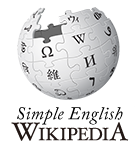Any educator nowadays has the opportunity of catching the wave as George Couros explains in his article " 10 essential characteristics of a 21st century educator".
In this entry we are going to comment on the post of George Coruos:
Pointing out some ideas:
It starts with the reflexion:
"we are 16 years into the 21st century!”, yet I would argue, we have 84 years to go! ..."
If there is something everybody agrees about 21st century, is that everything is moving at tremendously fast speeds.
Let´s name the pointed characteristics:
Relationship Builder
Do our students feel valued when they come to school? Do we seek to simply engage them in content, or do we seek to empower them to create?
Learner/Adapter
We do not have to change everything, but we need to continuously evaluate our practices and the impact on students to grow and get better.
“If we create a culture where every teacher believes they need to improve, not because they are not good enough but because they can be even better, there is no limit to what we can achieve.” —Dylan Wiliam
Inclusive
Every single individual has different experiences and strengths that they bring to the classroom...
Reflective
Information is coming our way faster than ever.
How could you possibly move forward without looking back?
“We do not learn from experience, we learn from reflecting on experience.” John Dewey
Networked/Collaborative
Networks consist of both “online spaces” and face to face collaboration. ... When you are networked, great ideas often find you, not the other way around.
As David Weinberger states, “
The smartest person in the room is the room.” If that is true, how big is your room? How do you access this “room” to be better for your students?
Innovator
How do we look at what our students need and create opportunities for them to learn in deeper and meaningful ways? How do our students become these same innovators? They will need to become this in their world, and hopefully it is because of us, not in spite of us.
Remember…innovation is probably not in your curriculum, but neither are worksheets.
Leader
The notion that “everyone is a leader” is something that has been challenged a great deal over the years, yet what does being a “leader” mean? It is not being a boss.... If only a few people are “allowed” to lead, meaningful change will happen at a much slower pace.
Storyteller
“If history were taught in the form of stories, it would never be forgotten.” ― Rudyard Kipling
... we have to make a connection to the heart before we make a connection to the mind. ...Your story and stories matter, and will resonate long after our time with our students. You might not feel you have anything meaningful to share, but we all have a story to tell.
“The purpose of a storyteller is not to tell you how to think, but to give you questions to think upon.” ― Brandon Sanderson
Designer
“would you want to spend the whole day learning in your own classroom?”
Are your learning experiences designed to meet the needs the of the unique learners in your context? How do you ensure that you are building on the strengths and passions of all learners? How does the space and environment you create factor into the learning experiences? These are all important considerations for how we designing learning experiences today.
Artist
I have been thinking about the idea of “educator as artist” a lot more recently, and love this quote from John Steinbeck;
“I have come to believe that a great teacher is a great artist and that there are as few as there are any other great artists. Teaching might even be the greatest of the arts since the medium is the human mind and spirit.”
Anything new? most of teacher would say, "No"; it´s true this characteristics are timeless but sometimes it is good to remember the good habits, ;).






